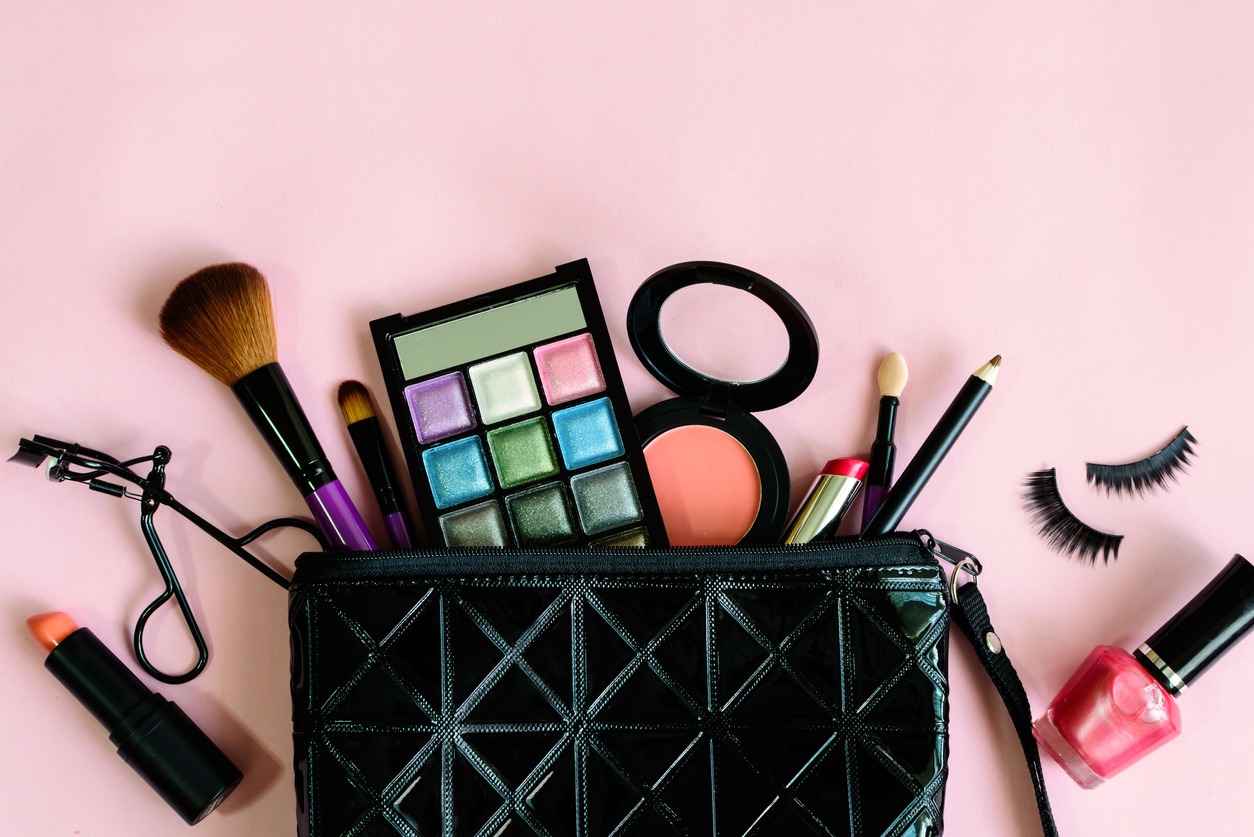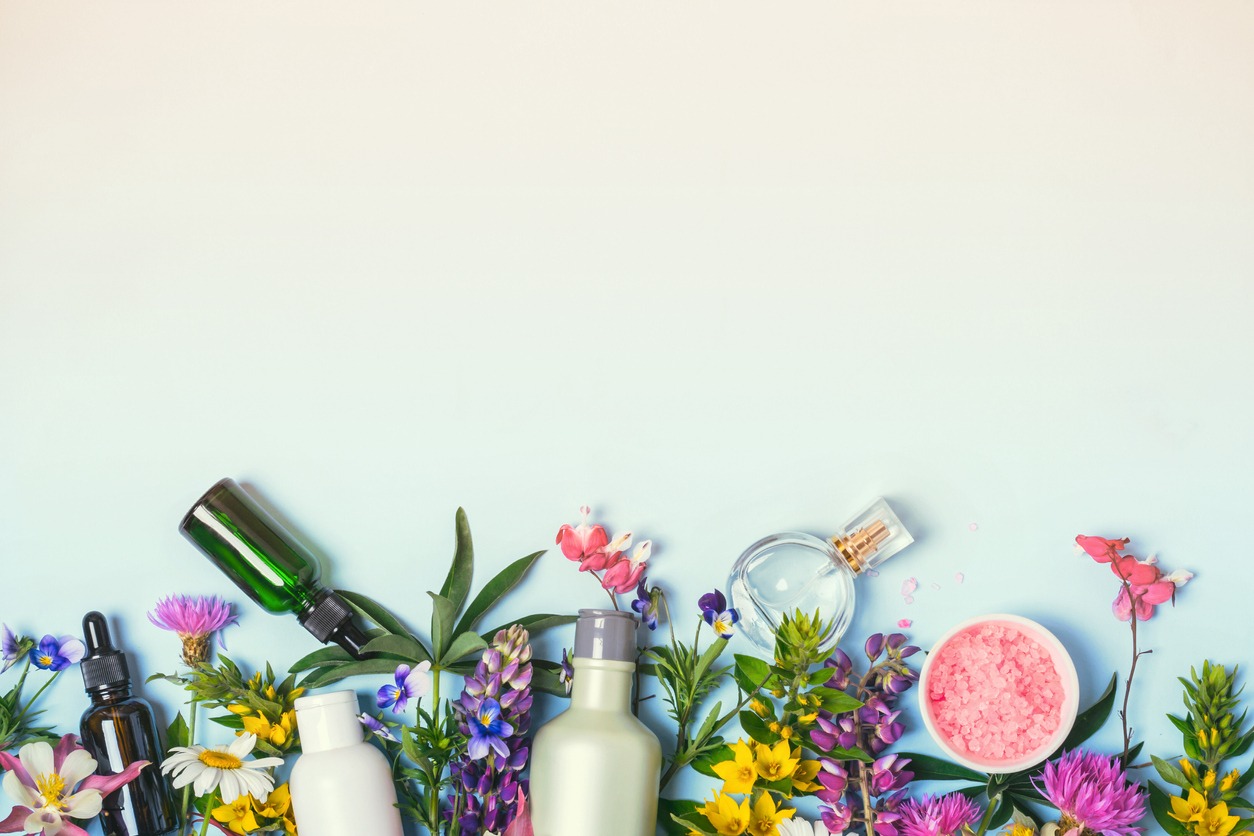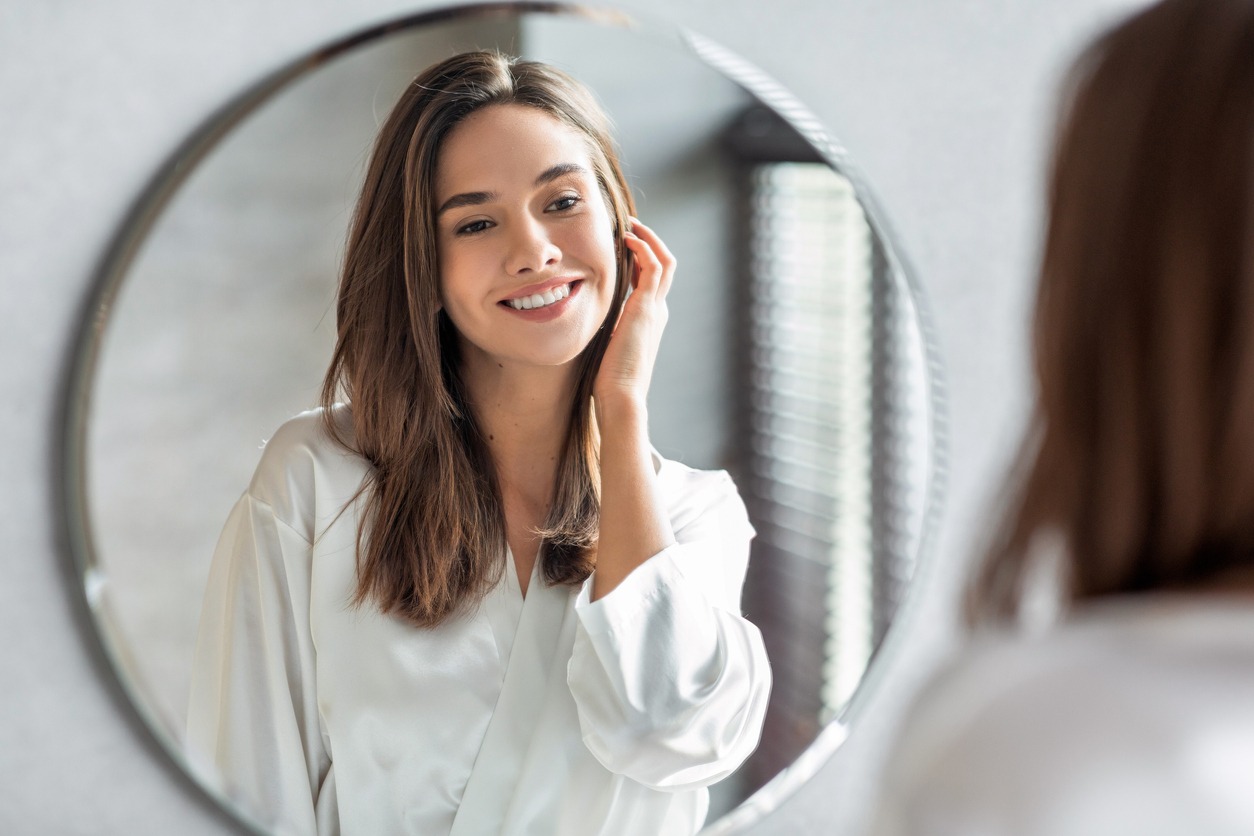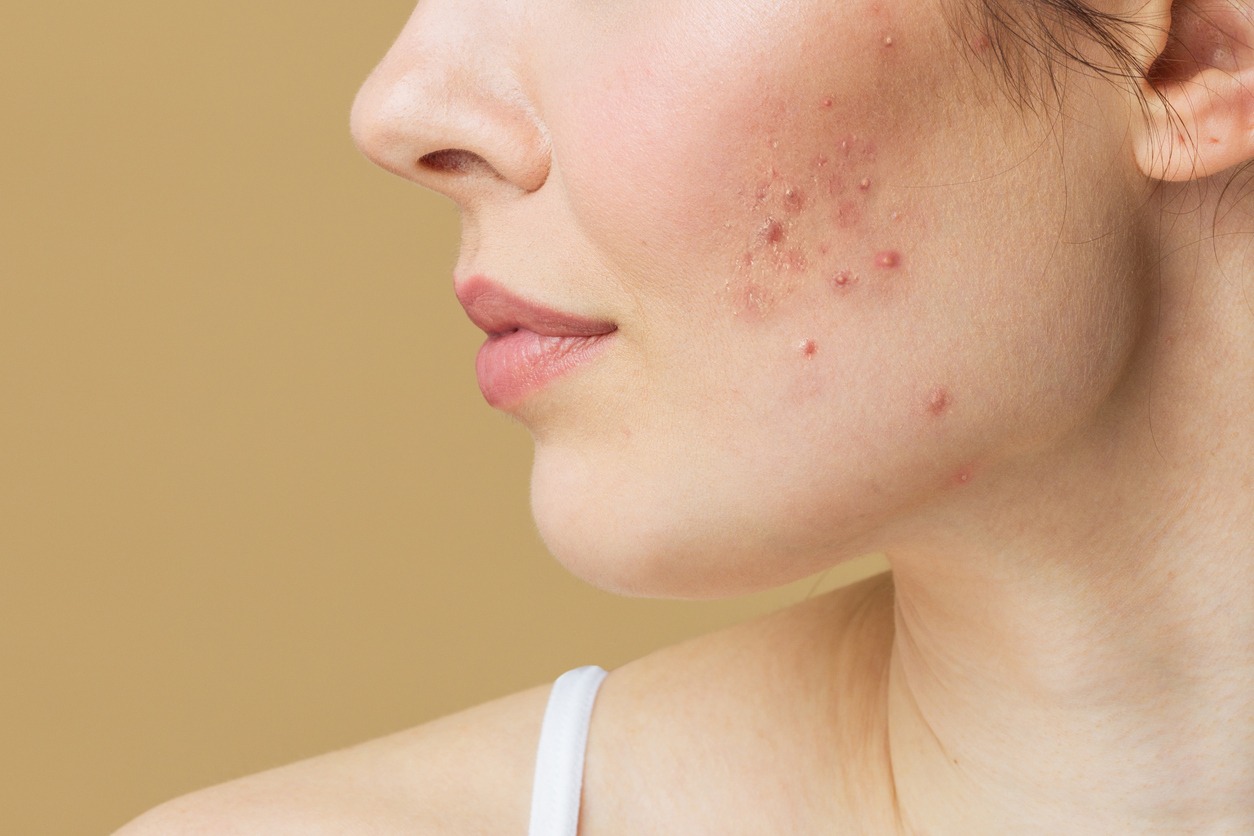One of the best cosmetic options that doesn’t clog pores is mineral makeup. It even contains natural ingredients that help treat and soothe the skin. Mineral makeup is generally beneficial for the skin. While titanium oxide and zinc together provide physical sun protection, zinc reduces the skin’s redness and inflammation. Wearing mineral makeup can actually help shield your skin from the sun’s harmful UV rays, which can exacerbate redness and breakouts in people with acne-prone skin. With mineral makeup, you can make yourself look beautiful and blemish-free while you take care of your skin.
What is Mineral Makeup?
The cosmetic equivalent of eating gluten-free is mineral makeup. To produce makeup, minerals including titanium dioxide, talc, zinc oxide, and iron oxides are micronized, or ground and milled, into extremely small particles.
Various products micronize to varying degrees. A product that has been 6 times micronized leaves minerals larger, providing light to medium coverage for the skin. Products that have been micronized 12 times produce fine particles that sit closer together and provide more coverage.
The significant difference between mineral makeup and traditional makeup is what’s not in mineral makeup.
The emollient oils and waxes, fragrances, and preservatives present in traditional makeup are typically absent from mineral makeup. Since they have a very mild odor, mineral products are frequently fragrance-free and are typically preservative-free. Irritation is frequently brought on by fragrance and preservatives.
The following minerals are typically found in mineral makeup: (1) iron oxides to complement various skin tones and types; (2) zinc oxide as a natural sunscreen and antioxidant; (3) mica powder to add that lovely sheen; and (4) titanium dioxide, a natural pigment that doubles as a sunscreen.
Benefits of Mineral Makeup
When looking for environmentally friendly makeup, many individuals will discover that mineral makeup is one of the top choices. The use of mineral makeup is highly prevalent today because of the demand in safe, natural, and organic products. But that’s not the only reason for its use. Here are a few benefits we’ve observed on why mineral makeup is taking the beauty industry by storm.
- Good for Oily Skin: Mineral makeup is also a great option if you have oily skin and struggle to maintain to keep your face matte because the natural minerals absorb oils and let your skin breathe. While many products have a shimmering effect, this does not mean that they are greasy, and there are products available that are specifically made for oily skin.
- Good for Sensitive Skin: For those with sensitive skin, acne, eczema, psoriasis, or other skin disorders, mineral makeup is the ideal option. It won’t clog pores or trigger breakouts because it is non-comedogenic.
- Protects Skin from Sun Damage: The fact that mineral makeup contains natural sunscreen as a component (zinc oxide or titanium dioxide) is among its most amazing advantages. This indicates that you are shielding your skin from harmful sun damage just by wearing it. Additionally, the environment will appreciate you since coral reefs are typically harmed by chemical sunscreens, which you should try to avoid using.
- It’s Lightweight and Breathable: The majority of us have encountered the icky feeling and appearance of cakey makeup. Fortunately, mineral makeup completely prevents this because it’s natural and feels like a part of your skin rather than a mask. All day long, your skin can breathe while still benefiting the anti-aging advantages of cosmetics. And finally, mineral makeup is really easy to take off. You won’t require tissues or harsh cleansers.
- Makes Skin Look Healthy and Beautiful: Mineral makeup can really help minimize the appearance of fine lines and wrinkles, whereas many traditional makeup products, like foundations or powders, might accentuate them. The same holds true for any other imperfections, such as acne or blemish spots. Most women seek for a youthful appearance, and mineral makeup gives your skin that healthy, natural look.
Pros and Cons of Mineral Makeup
All cosmetics, whether natural, organic, or mixed, unavoidably have both positive and negative aspects. Nothing is perfect, so before making a purchase, we advise getting your skin examined by a specialist.
PROS:
- Makes your Skin Healthier: The best option for you if you have allergies and sensitive skin is mineral makeup. Powder mineral makeup does not contain any preservatives, dyes, fragrances, or toxic ingredients that can irritate your skin. And because it is non-comedogenic, your pores won’t get clogged.
- Has Anti–Inflammatory Properties: Zinc oxide can help you manage skin redness and can lessen the visibility of scars if you frequently have acne breakouts.
- Has Great and Natural-looking Coverage with Less Ingredient: A natural shimmer can be achieved with mineral makeup. Mineral makeup can provide you better and more natural coverage when applied to your skin, as compared to traditional makeup, which requires more layers on your face to achieve great coverage.
CONS:
- Has Rare and the Pure Ingredients: You can opt to take a chance and buy what is most readily available on the market. However, be warned that pure mineral makeup is difficult to come by. The ingredients in what you might buy are not highly refined. Some products may include bismuth oxychloride, which might irritate your skin.
- Has Limited Option of Colors: You can choose from a variety of skin tone shades from typical makeup manufacturers. Mineral makeup has a limited palette of hues to match your skin tone because dyes are not used.
Why Your Makeup Is Causing Acne Breakouts
Makeup is intended to enhance, not worsen, your appearance. So what do you do if the breakouts you’re trying to conceal are being brought on by the makeup itself? Do you just keep using makeup to cover it and let pimples grow?
Although some cosmetics contain ingredients that encourage acne, how you apply the product may also be contributing to your breakouts. Here are some potential causes of your acne that may be related to your makeup, as well as some preventative measures.
- Your makeup is clogging your pores: Oil and sweat are expelled from the skin through pores. Bacteria and dead skin cells become stuck there when they are covered in occlusive makeup oil, causing acne outbreaks. Look for the word “non-comedogenic” when selecting makeup so that it won’t clog your pores. Use non-comedogenic moisturizers and primers that are made exclusively for the face.
- Your makeup is irritating your skin: Your skin may become irritated and break out if you are sensitive to an ingredient of the makeup you are wearing. If you think this might be the case, opt for makeup that is “hypoallergenic,” which means it has been clinically shown to be safe for sensitive skin and has mild ingredients.
- You wear too much powder: It is common knowledge that powders are occlusive, especially if you are caking them on. People with oily skin often use powder excessively to cover up their concerns, which simply makes them worse over time. Your skin won’t be able to breathe, which could cause it to start producing more oil.
- You’re not using clean applicators: Maintaining clean makeup brushes and sponges is essential for preventing acne since dirty applicators can spread germs that causes acne all over your face.
- You use your fingers to apply your foundation: Applying foundation with your fingers takes much longer and increases your chances of developing pimples. The oils from your fingers might transfer to your skin even if you just washed your hands. Apply your makeup instead using a fresh sponge or foundation brush.
Choosing a Mineral Makeup
Want to try mineral makeup but don’t want to spend a fortune on products that won’t meet your specific needs? Start with a sample size and observe how your skin responds after using it for one or two days. When choosing mineral products, you should also keep the following in mind:
- Always read the ingredients list: Avoid common irritants like talc and mineral oil as well as substances that you are aware irritate your skin.
- Test out mineral makeup by itself: You might not be able to identify the problem-causing product if you mix new makeup with primer or concealer. A chemical reaction between two products is possible.
- Follow the instructions on the package: Each mineral product has a specific set of instructions, and if they are not followed, the product may not work as intended.
Conclusion
Read the label to be sure you’re purchasing a high-quality mineral makeup product. These products may have ingredients like paraben preservatives or dimethicone added for a smooth texture if they are labeled “mineral-enriched” or if the composition is liquid or mousse. Other ingredients for your skin may be included in products that aren’t powders, such as moisturizers, vitamins with antioxidants, or other ingredients. It’s your choice.





